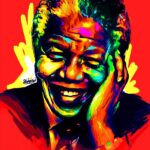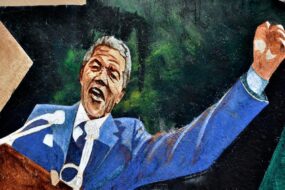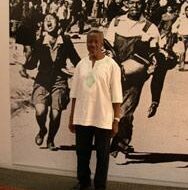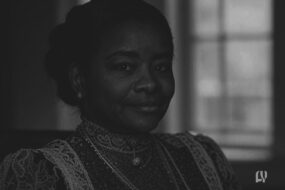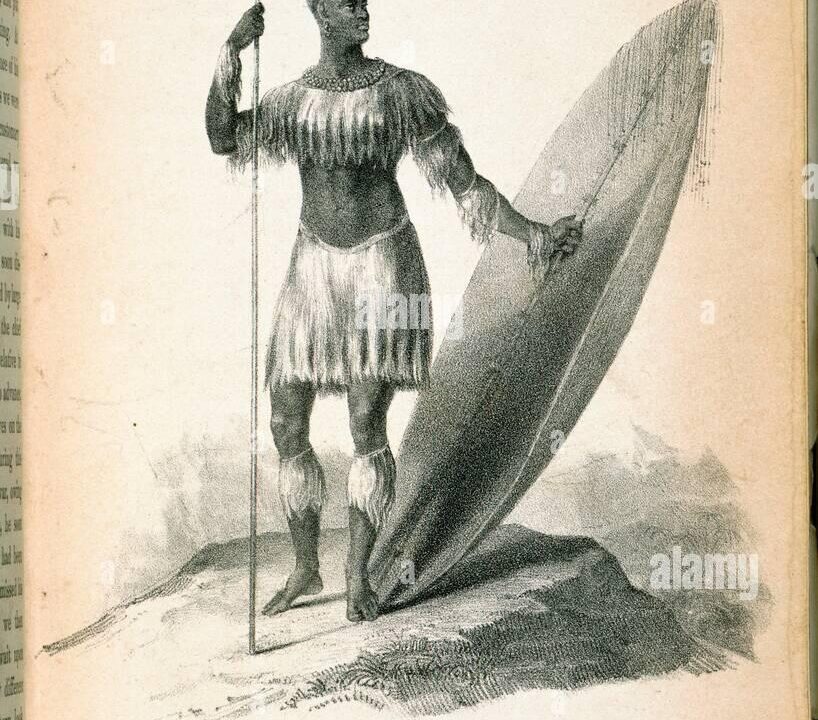
“The Sinister Secrets of South AfricaS Project Coast: A Nation’s Descent into Bio Warfare”
Imagine being injected with a mysterious serum, only to discover it was part of a sinister government experiment designed to manipulate and control. Welcome to the dark world of project Coast, a clandestine operation that pushed the boundaries of ethics and morality, forever changing the lives of countless individuals and the very fabric of South Africa.
It’s 1985 in Pretoria, and behind locked gates, government scientists are testing something the world isn’t ready for. The apartheid regime, desperate to maintain its grip on power, has been secretly funding a series of inhumane experiments under the guise of “chemical and biological warfare” research. Project Coast, led by the enigmatic and ruthless Dr.Wouter Basson, a renowned chemist and toxicologist, would become the most infamous and feared program in south African history. Basson, a man with a reputation for brilliance and recklessness, had a vision to create a new breed of super-soldiers, loyal only to the government, and willing to carry out its most nefarious tasks.
As the project gained momentum, Basson assembled a team of skilled scientists, many of whom were recruited from the country’s top universities and research institutions. Together,they worked tirelessly to develop an arsenal of deadly chemicals and biological agents,designed to incapacitate,disorient,and even kill. The project’s true intentions were shrouded in secrecy, but its consequences would be catastrophic. From the development of lethal nerve agents to the creation of mind-altering substances,Project Coast was a Pandora’s box of horrors,unleashing a reign of terror on the South African people.
One of the most shocking aspects of Project Coast was its use of unsuspecting civilians as test subjects. Many were lured into the program under false pretenses, while others were forcibly recruited, often with no knowledge of the experiments being conducted on them. These individuals, including prisoners, homeless people, and even patients from psychiatric hospitals, were subjected to inhumane treatments, including injections with untested and highly toxic substances.The effects were often devastating, with many test subjects experiencing severe physical and psychological trauma, some of which would last a lifetime.
The project’s scientists were not only experimenting with deadly agents but also exploring the realm of psychological warfare. They developed a range of mind-altering substances,designed to manipulate and control the human mind. These substances, often referred to as “chemical knockout drops,” were intended for use by the police and military to subdue and disorient suspects.Though,their use soon spiraled out of control,with many innocent people falling victim to these potent chemicals.
As Project Coast continued to expand its scope,it became increasingly intertwined with the South African Police’s (SAP) most covert operations. The police force, already notorious for its heavy-handed tactics, began to utilize the project’s deadly agents and mind-altering substances to quell anti-apartheid protests and silence dissenting voices. This toxic cocktail of repression and violence only fueled the flames of resistance, as the South African people began to organize and fight back against the apartheid regime.
One of the most infamous incidents linked to Project Coast was the attempted assassination of anti-apartheid leader, desmond Tutu. In 1986, a SAP operative, allegedly trained under the project’s umbrella, attempted to poison Tutu with a lethal chemical agent. The plot was foiled, but it highlighted the regime’s willingness to go to extreme lengths to eliminate its perceived enemies.
As the years went by, Project coast’s activities became increasingly brazen and reckless. The program’s operatives were involved in a range of illicit activities, from smuggling and trafficking to murder and sabotage. The project’s influence extended far beyond the laboratory, infiltrating every level of South African society. It was a hydra-like monster, with tentacles reaching into the highest echelons of government, business, and even the military.
The international community, oblivious to the horrors unfolding in South Africa, continued to condemn the apartheid regime’s brutal tactics. However, it wasn’t until the late 1980s, when the project’s existence began to leak into the public domain, that the world started to take notice. In 1990, a courageous south African journalist, Greg Marinovich, broke the story of Project Coast, exposing the regime’s sinister plans to the world.
The revelations sparked widespread outrage and condemnation, both domestically and internationally. In the face of mounting pressure, the apartheid regime was forced to dismantle Project Coast, and many of its key operatives were brought to justice.Dr.Wouter Basson, the project’s mastermind, was arrested in 1993 and charged with numerous counts of murder, attempted murder, and other crimes. Even though he was eventually acquitted,his reputation was forever tarnished.
in the aftermath of Project Coast’s demise, south Africa embarked on a long and difficult journey of healing and reconciliation. The Truth and Reconciliation Commission, established in 1995, provided a platform for victims to share their testimonies and seek justice. The commission’s findings shed light on the darkest corners of South Africa’s past, forcing the nation to confront its collective demons.
Today, the legacy of Project Coast serves as a cautionary tale, reminding us of the dangers of unchecked power and the importance of accountability. As we reflect on this dark chapter in South African history, we are reminded that the pursuit of knowledge and scientific progress must always be guided by ethics and a deep respect for human life.
#SouthAfricanSecrets #HiddenHistory #MilitaryExperiments #GovernmentProjects #ClassifiedSouthAfrica #InfographicStory #TrueStory #AfricanHistory #ProjectCoast #BioWarfare #ApartheidRegime #DesmondTutu #WouterBasson #ChemicalAndBiologicalWarfare #MindControl #PsychologicalWarfare #ToxicSubstances #AssassinationPlot #TruthAndReconciliationCommission #SouthAfricanPolice #ResistanceMovement #AntiApartheidMovement #RegimeOfTerror #RepressionAndViolence
<img class="bimage_class" src="https://campusstore.co.za/wp-content/uploads/2025/04/gShaka.jpg" alt="The Untold Story of Shaka Zulu: The Rise and Fall of Africa’s Greatest Warrior King
Can you imagine a leader so feared and revered that his name becomes synonymous with bravery and brutality? A king who transforms his tribe into a mighty empire, leaving a trail of destruction and awe in his wake? Welcome to the epic tale of Shaka zulu, one of Africa’s most fascinating and complex historical figures. Shaka’s story is a riveting mix of politics, war, and culture, set against the backdrop of 19th-century south Africa. Get ready to be transported into a world of tribal conflicts, bloody battles, and royal intrigue.
In the early 18th century, the Zulu tribe was just one of many small clans vying for power in the region known as Natal, in present-day South Africa. Shaka’s father, Senzangakhona, was the chief of the Zulu, but his leadership was marked by weakness and indecision. Shaka’s early life was marked by hardship and rejection; he was born out of wedlock, and his father initially refused to acknowledge him as his son.This rejection would shape Shaka’s character,fueling his ambition and drive for recognition. As a young man, Shaka was exiled from his tribe and forced to join the Mthethwa army, where he quickly distinguished himself as a skilled warrior and tactician under the mentorship of the powerful chief, Dingiswayo.
Dingiswayo’s influence on Shaka cannot be overstated; he not only taught Shaka the art of warfare but also instilled in him a sense of discipline and strategic thinking. When Dingiswayo was killed, Shaka saw an opportunity to return to his tribe and claim leadership. Using his military prowess and charisma,Shaka overthrew his father and took control of the Zulu tribe. This was just the beginning of a meteoric rise to power. Shaka began to transform the Zulu from a small, relatively insignificant tribe into a dominant force in the region. he introduced new military tactics, such as the “buffalo horns” formation, where his warriors would encircle their enemies, leaving them trapped and vulnerable to attack.
As Shaka’s military campaigns expanded, so did his empire. He conquered neighboring tribes, incorporating their warriors into his army and absorbing their people into his growing nation. His methods were brutal; those who resisted were slaughtered, and their families were assimilated into the Zulu tribe. shaka’s warriors were known for their discipline and loyalty, but also for their ferocity and willingness to carry out their leader’s ruthless orders. The Zulu kingdom became a behemoth, striking fear into the hearts of neighboring tribes and European colonizers alike. Shaka’s reputation as a military genius and a fierce leader spread far and wide, earning him both admiration and terror.
But Shaka’s success was not just due to his military might; he was also a shrewd politician who understood the importance of cultural and social reform. He introduced a new system of association,dividing his people into age-sets,or “amperregiments,” which helped to centralize his control and mobilize his warriors more efficiently. He also promoted a cult of personality,elevating himself to the status of a divine leader,with his own mythology and symbolic rituals. Shaka’s reign became a mix of martial law and cultural renaissance, as he promoted the arts and encouraged a sense of national identity among his people.
Despite his many achievements, Shaka’s reign was not without controversy. His rule was marked by paranoia and violence, as he became increasingly ruthless in suppressing any opposition. His personal life was also tumultuous; he had many wives, but no children, and his relationships with his family were strained. Shaka’s mother, Nandi, played a meaningful role in his life, and her death in 1827 sent him into a deep depression. He ordered a year of mourning,during which many of his people were forced to abstain from their daily activities,leading to widespread hardship and suffering. This event marked a turning point in Shaka’s reign, as his behavior became increasingly erratic and tyrannical.
The final blow came in 1828, when Shaka was assassinated by his half-brothers, Dingane and Mhlangana, who had grown tired of his brutal rule. The event was orchestrated with the help of a rival faction within the Zulu kingdom, and it marked the beginning of a period of instability and power struggles. Shaka’s legacy, though, endured; his empire continued to shape the region’s politics and culture for generations to come. The Zulu kingdom remained a powerful force, resisting European colonization and eventually becoming a central player in the complex history of South Africa.Shaka’s impact on South African history cannot be overstated. He is remembered as a hero and a unifying figure by many, but also as a ruthless tyrant by others. His story is a testament to the complexities of human nature and the enduring power of leadership. As we reflect on Shaka’s life and legacy, we are reminded of the importance of understanding the past, with all its complexities and contradictions. Shaka Zulu’s tale is a gripping reminder of the intricate web of politics, culture, and war that shapes the course of human history.Shaka’s story is a reminder that history is not just a series of events, but a narrative that continues to unfold, shaping our understanding of the world and our place within it.As we look to the future,we are drawn back to the past,to the figures and events that have shaped our world. Shaka Zulu’s legacy is a powerful reminder of the enduring impact of human action, and the importance of understanding the complex forces that have shaped our world.
#InfographicStory #ShakaZulu #SouthAfricanHistory #zulukingdom #AfricanEmpires #WarriorKing #HistoricalFigures #DidYouKnow #TrueStory #HistoryNerd #GlobalFigures #AfricanCulture #SouthAfrica #kingdomsandempires #LeadershipLegacy #CulturalHeritage #MilitaryTactics #TacticalGenius #RiseAndFall #PowerAndPolitics #HistoricalEvents”>


